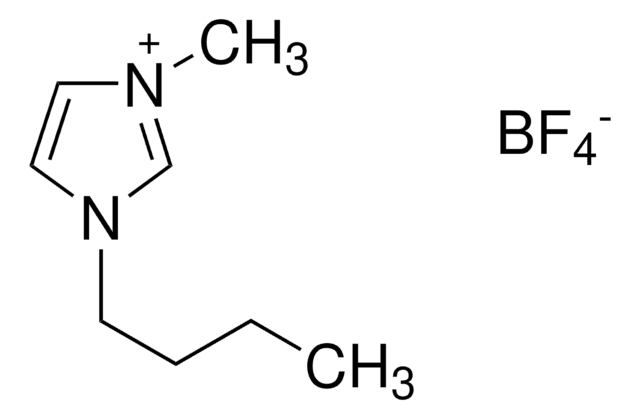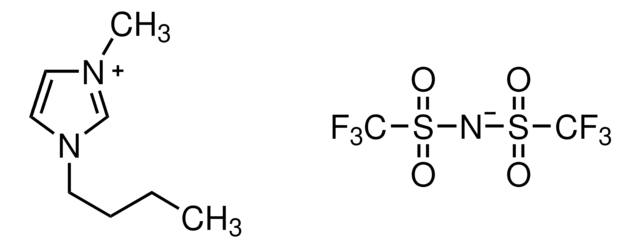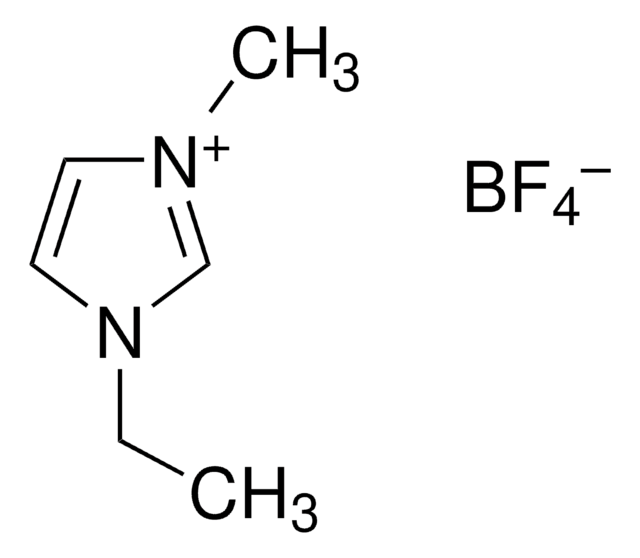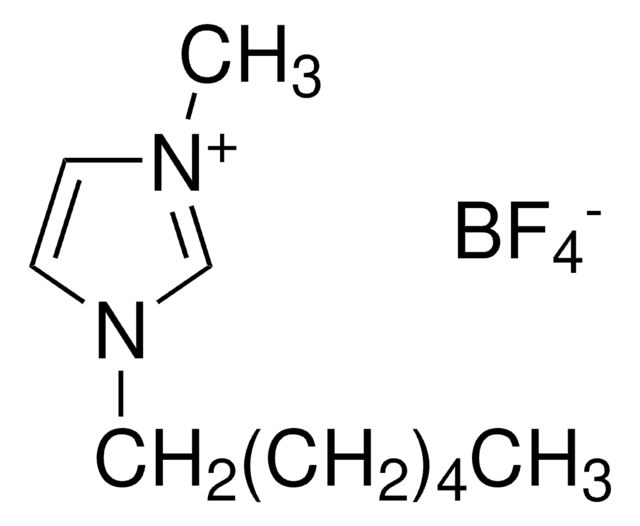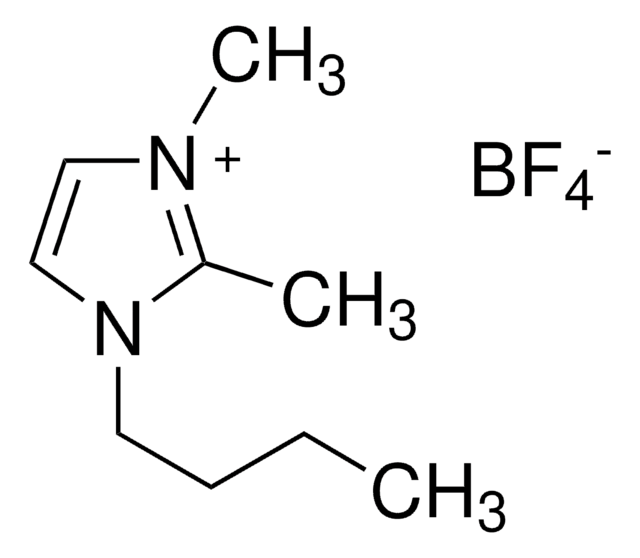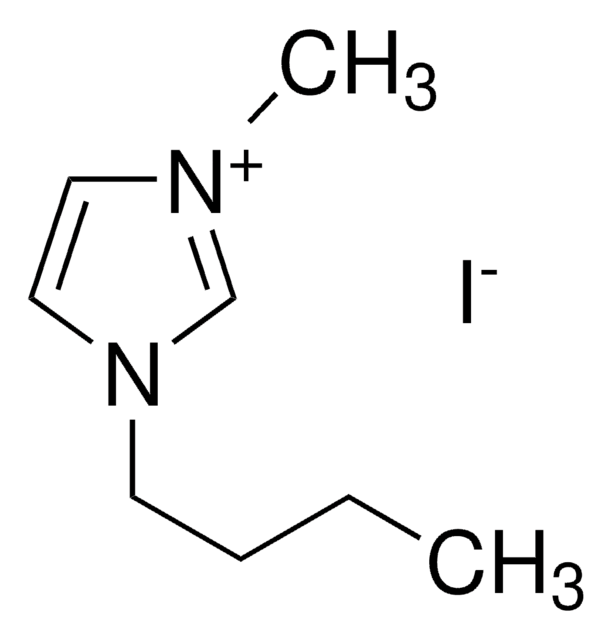711748
1-Butyl-3-methylimidazolium tetrafluoroborate
≥98%
Synonym(s):
BMIMBF4
About This Item
Recommended Products
Quality Level
Assay
≥98%
form
liquid
impurities
≤0.5% water
density
1.21 g/mL at 20 °C (lit.)
SMILES string
F[B-](F)(F)F.CCCCn1cc[n+](C)c1
InChI
1S/C8H15N2.BF4/c1-3-4-5-10-7-6-9(2)8-10;2-1(3,4)5/h6-8H,3-5H2,1-2H3;/q+1;-1
InChI key
LSBXQLQATZTAPE-UHFFFAOYSA-N
Looking for similar products? Visit Product Comparison Guide
General description
Application
- As a reaction medium for the preparation NH4TiOF3 mesocrystals, which are converted into TiO2 based nanostructures.
- As a working fluid along with 2,2,2-trifluoroethanol in absorption heat pumps or chillers.
- As an electrolyte in lithium-ion batteries and double layer capacitors.
Signal Word
Danger
Hazard Statements
Precautionary Statements
Hazard Classifications
Acute Tox. 3 Oral - Aquatic Chronic 2 - Eye Irrit. 2 - Skin Irrit. 2
Storage Class Code
6.1C - Combustible acute toxic Cat.3 / toxic compounds or compounds which causing chronic effects
WGK
WGK 3
Flash Point(F)
550.4 °F
Flash Point(C)
288 °C
Personal Protective Equipment
Regulatory Listings
Regulatory Listings are mainly provided for chemical products. Only limited information can be provided here for non-chemical products. No entry means none of the components are listed. It is the user’s obligation to ensure the safe and legal use of the product.
PDSCL
Deleterious substance
PRTR
Class I Designated Chemical Substances
JAN Code
711748-INTR:
711748-1KG:4548173299969
711748-100G:4548173299952
711748-VAR:
711748-BULK:
Choose from one of the most recent versions:
Already Own This Product?
Find documentation for the products that you have recently purchased in the Document Library.
Customers Also Viewed
Articles
Ionic liquids, also called room temperature ionic liquids, are organic salts that are liquid at, or close to, room temperature.
Our team of scientists has experience in all areas of research including Life Science, Material Science, Chemical Synthesis, Chromatography, Analytical and many others.
Contact Technical Service
